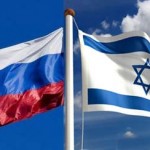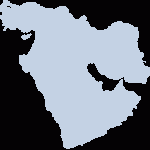 UPDATE 0600 GMT: Nooshabeh Amiri, writing in Rooz English, offers a powerful opinion piece on last week's demonstrations, "Shut the Majlis, oh Brother!"---Mr Verde writes for EA:
UPDATE 0600 GMT: Nooshabeh Amiri, writing in Rooz English, offers a powerful opinion piece on last week's demonstrations, "Shut the Majlis, oh Brother!"---Mr Verde writes for EA:"Crisis" in a country is not usually associated with a debate over higher education. The military, the police, radio and TV, the courts, elections: these are the battlegrounds that come to mind.
Make no mistake, however. The current dispute in Iran over Islamic Azad University is important. It is significant not just because Ahmadinejad and Co. want to oust former President Hashemi Rafsanjani and his allies from the university's management. It is an indicator of other possible trouble within the regime.
First, the beginner's guide to the current dispute:
- The Supreme Council of the Cultural Revolution, headed by Ahmadinejad in his capacity as President, decides to overturn last summer's decision of the Azad University Board to make itself into a trust. The SCCR also said it would appoint new trustees.
- Azad University takes legal measures, and a court issues an injunction against the SCCR decision.
- The following day, the Parliament votes for legislation that will in effect block attempts by the SCCR to hand over the management of Azad University to the Government.
- There is a demonstration by a small number of regime-organized "students" outside the Majlis. The demonstrators shout slogans against the Parliament, the MPs, and the Speaker Ali Larijani. Some of the signs they are carrying are regarded as so rude that the Iranian Students News Agency blurs out the slogans. It is reported that one of the speakers at the gathering threatened that they would bombard the Majlis (as the Russian Colonel Liakhov had done on behalf of Mohammad Ali Shah in 1908).
- The following day the Parliament votes to annul its previous decision, even though the original bill is still in the process of being vetted by the Guardian Council. During the debate MPs insult each other and Ali Motahari claims that the pro-Ahmadinejad Koochakzadeh (who is close to Ahmadinejad) is of Russian descent and has changed his name from Koochakov. Motahari later claims that, during the debate, Koochatzadeh/Koochakov physically attacked him.
- After a request from Iran's Prosecutor General Gholam-Hossein Mohseni-Ejei, the head of judiciary, Sadegh Larijani, orders another court to review the injunction against the Council.
A bit of background:The Supreme Council of the Cultural Revolution was created by the Islamic Republic in the early 1980s, as part of the Cultural Revolution that shut universities for a few years. Since then, both Ayatollahs Khomeini and Khamenei have said that the the decisions of the SCCR should be considered as the law of the land and that the other state organs, including the Majlis, should not contradict these decisions.
The Supreme Leaders' declarations stand against the Constitution, under which the Majlis has the authority to pass laws on all matters. The Supreme Council of the Cultural Revolution is not even mentioned in the Constitution.
Conclusion? The judge who ordered the injunction, in his interpretation of the Constitution, defied Ayatollah Khamenei’s standing orders regarding the decisions of the SCCR.
On the day the Parlaiment was debating the original law, one MP, citing the Supreme Leader’s views about the SCCR’s powers, tabled a motion to stop debate. MPs voted against the proposal.
Some more background:When legislation is passed by the Majles, it has to be vetted by the Guardian Council. The Council will return legislation that it deems to be against the Constitution and/or Sharia law. At this stage the legislation is returned to Parliament.
If the Majlis tries to accommodate the views of the Council, the legislation is vetted again. If Parliament refuses to accommodate the Council, the legislation goes to the Expediency Council. In such a case, the Expediency Council’s decision will become law.
One issue that stands out:At the present time, two laws have been pass by the Majles within two days, with the second negating the first. This does not look like confidence. It looks like chaos and crisis.
The demonstration in front of the Majlis:Was Ayatollah Khamenei behind the demonstration, its slogans, and speeches, or at least supportive of it? He certainly did not condemn it, as he has the post-election demonstrations including millions of Iranians.
Why resort to the embarrassing, costly, chaotic, and illegal tactic of organizing the demonstration outside the Majlis? Why not ensure that the Council of Guardians rejects the legislation, returns it to Parliament, and then ensure that the Majlis votes in the way the Government wants?
Surely the regime should be able to rely on the trusted Council of Guardians. And the current Parliament has been filtered through two elections, with the Guardian Council weeding out the candidacy of almost all reformist “troublemakers”. (Speaker of Parliament Ali Larijani said that this is Khamenei’s Majlis. Note that he forgot to mention that the Majlis is supposed to belong to the people.)
Yet it appears that, despite this supposed control of the legislative process, even a heavily-sanitized Majlis is no longer reliable, so rent-a-thugs have to be paraded in front of the Majlis and insult their own MPs.
Implications:We are witnessing the use of regime demonstrators against an increasing number of people and institutions. That indicates, that for some reason, the regime’s internal structures are failing. Amidst what appears to be a serious crisis within the Islamic Republic,its institutions are unable to resolve it; at times they seem to be making it worse.
We are seeing increasingly angry speeches by Khamenei, directed at regime insiders, and comical announcements such as:
- It was announced aid ships were being sent to Gaza and escorted by the Revolutionary Guards. Then it was announced that no escort would be provided. Then it was announced that no aid ship would be sent, ostensibly to avoid war with Israel. Then it was announced that the ships did not go because Egypt had refused them permission to pass through the Suez Canal, only for Cairo to deny Tehran's claim.
- We have wildly varying timescales about self sufficiency in production of petrol: from 24 hours to more than two years. (The list is long and tiresome)
If all of this does not indicate a crisis, what would?
 Wednesday, June 30, 2010 at 8:12
Wednesday, June 30, 2010 at 8:12  Israeli-Russian relations continue to run along a knife edge. President Shimon Peres used a reception with Estonian President Toomas Hendrik Ilves on Monday to praise Russia for adopting a more aggressive policy on Iran. He praised Russian President Dmitry Medvedev, speaking at the G-20 meeting in Toronto, for noting the “worrying” US assessments that Iran could build a nuclear weapon within two years.
Israeli-Russian relations continue to run along a knife edge. President Shimon Peres used a reception with Estonian President Toomas Hendrik Ilves on Monday to praise Russia for adopting a more aggressive policy on Iran. He praised Russian President Dmitry Medvedev, speaking at the G-20 meeting in Toronto, for noting the “worrying” US assessments that Iran could build a nuclear weapon within two years.



